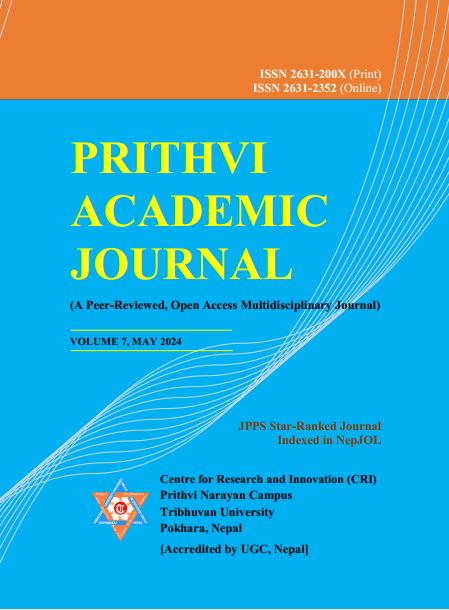Metaphors and the Politics of Nationhood in Bhutto’s If I Am Assassinated
DOI:
https://doi.org/10.3126/paj.v7i1.65771Keywords:
Autobiographical writing, conceptual metaphors, political discourse, nationhoodAbstract
This paper examines the conceptual metaphors used in Zulfiqar Ali Bhutto’s autobiographical writing If I Am Assassinated. This autobiographical testament is the response from the death cell of the Rawalpindi District Jail to the allegations of the military regime in the form of the White Paper which is perceived as an authoritative report by an organization. The legal cum political response was smuggled from the jail and published in India shortly before his execution. The qualitative study concentrates mainly on the nature and function of the conceptual metaphors in this dominantly political discourse. To address this issue, the concepts of conceptual metaphor developed by Lakoff and Johnsen (2003) has been used as theoretical base. Finally, the identification and interpretation of the metaphors have established that the trauma conveyed through conceptual metaphors affects the politics of nationhood. Particularly, such metaphors present Bhutto as a supra-subaltern character in Pakistani politics who fights to the end for democracy and nationalism.





